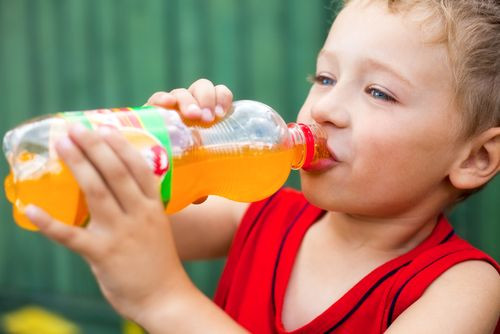Sugary Drinks May Damage Children's Brains So Badly It Affects Their Memory

Sugary drinks may be doing far more harm than just causing tooth decay and weight gain; it may be damaging our brains. Researchers from the University of Southern California have found a disturbing connection between sugary drinks and memory and will present their research at the Annual Meeting of the Society for the Study of Ingestive Behavior this week in Seattle, Wash.
"It's no secret that refined carbohydrates, particularly when consumed in soft drinks and other beverages, can lead to metabolic disturbances,” the study’s lead author, Dr. Scott Kanoski from USC, said in a press release. “However, our findings reveal that consuming sugar-sweetened drinks is also interfering with our brain's ability to function normally and remember critical information about our environment, at least when consumed in excess before adulthood.”
When children consume sugar-sweetened drinks throughout their young lives, researchers worry their results indicate poor memory function once they reach adulthood. It’s not just soda they’re talking about; it’s also apple juice, lemonade, sports drinks, and anything that contains enough sugar to make you worried they’ll be jumping off the walls within the hour.
Researchers fed adult and adolescent rats beverages sweetened with high fructose corn syrup or regular cane sugar that mimics concentrations found in common soft drinks. After only one month, the adult rats performed normal in tests to measure their brain’s abilities. However, when adolescent rats were tested their learning and memory was impaired.
"The hippocampus is such a critical brain region for memory function," Kanoski said. "In many ways this region is a canary in the coal mine, as it is particularly sensitive to insult by various environmental factors, including eating foods that are high in saturated fat and processed sugar."
In addition to a decline in the memories abilities to function, sugary drinks also caused an inflammation of the seahorse-shaped region of the brain known as the hippocampus. Not only does it play a key role in forming memories, organizing, and storing information, it can form new memories and connect to emotions and senses to memories.
How much is considered an excess of sugar? Well, the average American eats about 22 teaspoons of added sugar every day, which adds up to over 70 pounds a year. Added sugars are the sugars and syrups added to foods or beverages after they are processed or prepared, which means the natural sugar found in fruits doesn’t count, according to Yale Health.
Children’s sugar levels should be limited to up to 4 teaspoons per day. Women and female teens should have 5 teaspoons and men and male teens should limit themselves to 9 teaspoons daily, according to the American Heart Association. American teenagers are eating and drinking down nearly 34 teaspoons every single day.
Source: Kanoski SE, Konanur VR, and Hsu TM. Adolescent consumption of sugar-sweetened beverages impairs hippocampal-dependent learning. Annual Meeting of the Society for the Study of Ingestive Behavior. 2014.



























